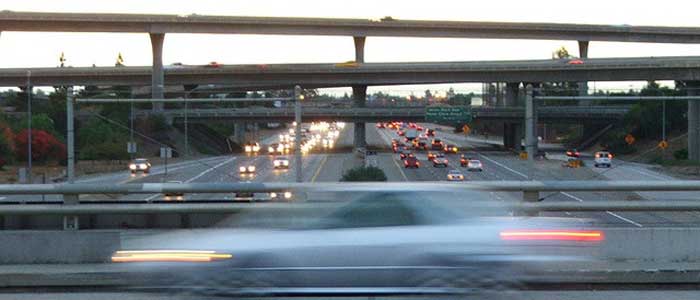In a move that’s sure to raise privacy concerns and spark paranoia among Bay Area residents, the Metropolitan Transportation Commission is exploring the idea of implementing a mileage based usage fee for drivers. The initiative, initially endorsed by a bipartisan Congressional commission in 2009, would charge drivers for “vehicle miles traveled,” increasing revenue for street maintenance and transportation related programs. However, with the plan in the extremely early stages, some motorists are concerned that the use of GPS technology to log their vehicle’s miles would be a massive invasion of privacy.
Although regional commission spokesman Randy Rentschler said, “it’s way too early to say if any plan would track people’s mileage with GPS,” that hasn’t stopped a wave of premature outrage from people concerned about “Big Brother” riding shotgun. Rentschler also added, “I don’t want to minimize the privacy concerns, but tracking people is the last thing we care about,” explaining that the proposed tax “could reduce traffic congestion and raise a considerable amount of revenue to pay for transportation-related programs that people say they want.”
Obviously, not everyone agrees. One critic called the mileage based tax proposal “a tax on having a job,” and complained about the “already exorbitant gas tax rate,” conveniently ignoring the fact that the U.S. tax rate on gas is laughably low compared to that of other developed countries. Additionally, as one article states, “The gas tax brings in far less than it did back in 1993, the last time it was raised, because of greater fuel economy in cars. And it’s a set price and not indexed to gas prices (which are three times higher than they were in 1993). So shouldn’t a usage based tax be on the table?
Stuart Cohen, the executive director of the transit advocacy group Transform, thinks it should be. Cohen was part of a group that actively lobbied for the commission to include the mileage proposal, explaining that inflation has eroded the existing flat tax on gas and led to “billions of dollars in unfunded transportation needs.” Adding that the proposed usage based fee would be more equitable than diverting an additional sales tax to transportation projects because it would be specifically charging the people who are using roads the most.
As for criticisms that the tax could be unfair to low income drivers, Cohen proposed making the tax more equitable by offering relief to drivers below a certain income level.
Although a usage based tax is a long ways off (and probably unlikely), it’s certainly a discussion worth having. Something needs to be done to narrow the gap between tax revenue and transportation funding, and although there are definitely some unanswered questions that need to be addressed, it will be interesting to see whether the mileage based tax proposal gathers momentum or gets run over before it ever has a chance.
Photo credit: https://www.flickr.com/photos/michaelpatrick/65227800/


